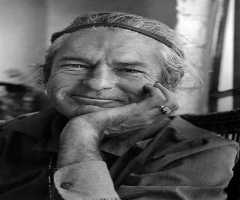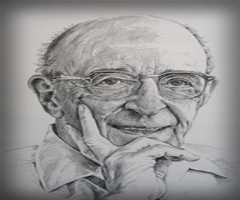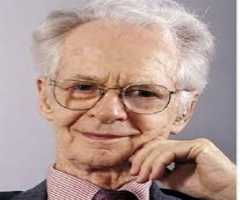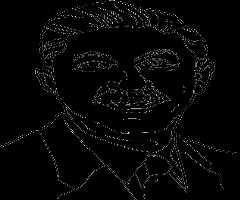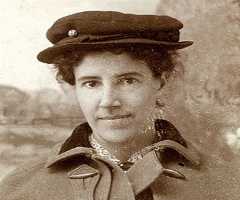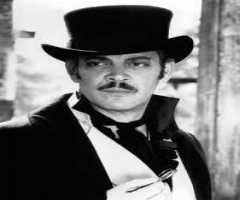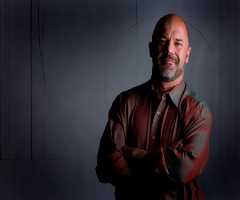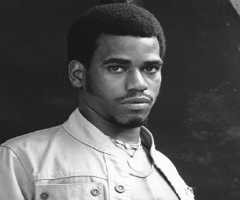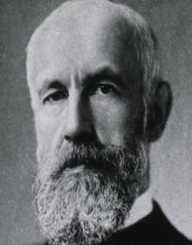
Birth Place : Hartford, Connecticut, United States of America
Died On : April 17, 1994
Zodiac Sign : Leo
Roger Wolcott Sperry Biography, Life, Interesting Facts
Roger Sperry came to prominence as a neurobiologist and neuropsychologist during the 20th century. It was a career that made him garner a Nobel Prize in Physiology and Medicine in 1981.A survey was done during his time, and it was noted that Roger climbed the ladder as the most mentioned psychologist.
Even though Roger Sperry wanted to pursue literature, he majored in psychology after the completion of his studies. It was here that he garnered his masters and Ph.D. in both zoology and psychology. But he is still widely known for his interest in the study of the brain, neurobiology. During this time he started to study and research different mammal’s brain including that of rat, cats, and cats.
Roger’s Personality
Roger Wolcott was famously known as a go-getter who concentrated more on present rather than past deals. He loved to figure out what he was best at, instead of trying different things at a go. Furthermore, Roger lived a lonely life, but this doesn’t mean that he didn’t want friends. On the contrary, he was immensely concerned about others people’s problems.
It was during his ‘lonely’ time that he came to establish the nerve fiber that conjoins two different parts of the brain. According to his research, a person’s mind seems to work as a channel but tends to undertake various functions. Even in his most relaxed time, Roger Sperry acted as the most rational being in the world. Probably he was always trying to predict how his mind works. Although he was attacked by a disease that caused him to stay in one place, loyalty and courage embraced his life.
Childhood and Early Life
On 20, August 1913 Roger Wolcott Sperry was first seen in the world in Hartford, Connecticut in the USA. His father, Francis Bushnell Sperry served as a banker. His dearest mother, Florence Kraemer Sperry was a hardworking homemaker. Sperry loved to spend more time with his younger brother called Russell Loomis Sperry. At eleven years old, Roger’s father called it quit to the world where his mother worked hard for daily upkeep. After a prolonged hardship, Florence landed a small job as the principal’s assistant at a local high school.
Roger Sperry joined William High School in Connecticut where he completed schooling in 1931. Besides; he enrolled at Oberlin College where he majored in English. It was during this time that one of his lecturers, Professor R.H introduced him to the field of psychology. Eventually, Roger got interested in the said subject. After the completion of his B.A in Literature, Roger went to pursue psychology, and in 1937 he received his second degree. He went further and garnered a Ph.D. in zoology.
Afterward, Sperry began to work on his doctoral role at the University of Chicago. He worked under an Australian biologist called Paul A. Weiss. It was during his course that he tried to define if nurture is so important than nature. In 1941 he received his Ph.D. This was after completing his first dissertation.
Early Career
In 1941, Roger Sperry joined Harvard University where he commenced with his research as a National Research Council under Prof. Karl Lashley. The following year, he turned into a Biologist where he teamed up with the Yerkes Laboratories at the Harvard University.
In the mid of 1946, Roger went back to his former varsity in Chicago where he was appointed as an Instructor of Anatomy Department. After three years, he suffered from tuberculosis to the point of being sent to NY for further treatment. It was in the middle of his break that he started to think about brain and mind.
In the mid of 1952, Roger Sperry came up with a notion called American Scientist which turned out to be the most important technology and science magazine. Even before publishing his first concept, he came up with a Chemo affinity hypothesis. The theory stated that its genetic structure and cell modification typically define an organism. The following year, Roger was appointed as an Associate Professor of Psychology at the University of Chicago.
Later on, Sperry received another position as an Assistant Professor of Psychobiology in California Institute of Technology. As a result, he opted to live in California where he continued his research on the formation of nerve fibers.
Later Career
While still at California Institute of Technology or Caltech, Roger Sperry started to work on several pieces of research; in the process, he opted to split cat’s brain to study its functionality. He linked the right eye of the cat with the left nerve fiber of the brain and vice versa. He later channeled the nerve fiber that tends to join the two parts of the brain. It was here that he taught cats to differentiate between triangles and squares first with the left eye covered and vice versa. The results finalized that the right and left side of the brain seems to work independently.
In his later works, Roger Sperry opted to major in science where he published his first book titled Science and Moral Priority in 1983. Still, at Caltech; he got a seat as the Professor of Psychobiology Emeritus. But this wasn’t the end of his research; he was always trying to find the next big thing that he didn’t manage to discover.
Personal Life and Achievements
In the mid of 1981, Roger Sperry received a Nobel Prize in Medicine. In 1949 he married Norma Gay Deupree, and the couple had a daughter and a son. His interest in Biology made him have tons of fossils. He was also known as a sculptor who loved to be connected with ceramics. He also loved to fish as well as camping. Before falling from another world of no return, Roger suffered from several ailments. He breathed his last on 17, April 1994 in California.
More Psychologists
More People From Connecticut
-
![Charlotte Perkins Gilman]()
Charlotte Perkins Gilman
-
![Betsey Johnson]()
Betsey Johnson
-
![John Franklin Enders]()
John Franklin Enders
-
![Adam Clayton Powell, Jr.]()
Adam Clayton Powell, Jr.
-
![Laura Ingraham]()
Laura Ingraham
-
![Nathan Hale]()
Nathan Hale
